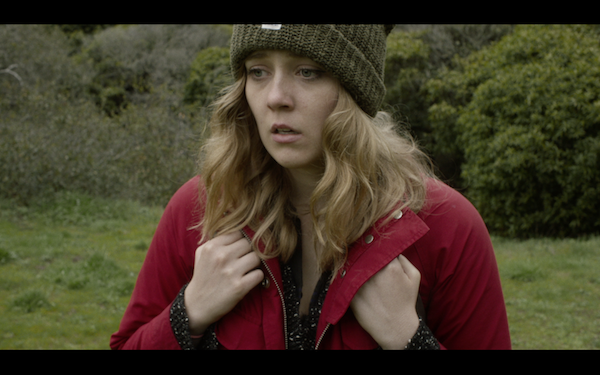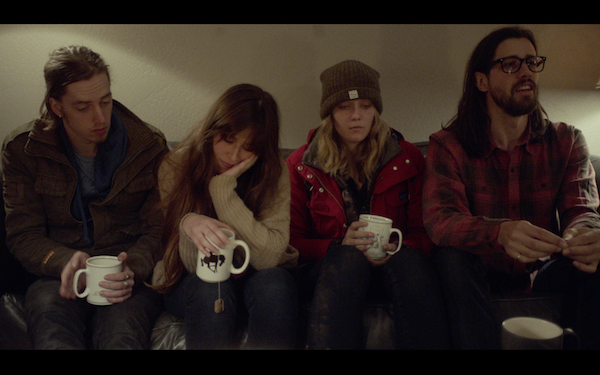Four friends face problems during a road trip. Bare-bones, Kickstarter-funded drama is hit-or-miss, but ultimately earns its place in the do-it-yourself genre of movies.

Shot in seven days for a reported $25,000, For Now bears all the shortcomings of improvised, DIY filmmaking. Solipsistic, at times dull, the movie splashes about in familiar waters before reaching a trendy open ending.
Despite that, chief filmmakers Kane Senes and Hannah Barlow work hard enough to lift For Now above expectations. Their story is engaging, their filmmaking style almost always interesting, and their characters manage to overcome pat roles to become real people viewers can care about.
It helps that the four main characters are so clueless about themselves, too self-absorbed to understand how others perceive them. Self-discovery is a major component of For Now, made a little more urgent by the fact that Hannah and her real-life brother Connor are basically playing themselves.
Living on a sofa because she can’t get her own place, Katherine (producer and co-writer Katherine Du Bois) doesn’t realize how inappropriate it is to bring back a date in the middle of the night. She sparks a fight with her friend Hannah (Hannah Barlow), an aspiring actor who’s teasingly close to landing a big role. Hannah in turn fights with her boyfriend Kane (Kane Senes), who ends up getting high with Katherine’s date.
That’s basically the pattern for the rest of For Now: an everyday situation provokes a fight, eventually leading to reconciliation and then getting high. Rolling joints is the fallback shot for the filmmakers, offset by plenty of wine and a couple of moments of furtive sex.
Kane, Hannah and Katherine drive from Los Angeles to San Francisco to pick up Connor, who is facing an audition with a prestigious ballet company. The four head farther north, stopping briefly at tourist sites before moving into a palatial chalet—an upgrade after their earlier rental was double-booked.

That’s where For Now grinds to a halt as Connor, Hannah, and Kane work through personal issues. (Katherine has problems of her own, although the script doesn’t give her much room to solve them.) But every time the movie threatens to become a navel-gazing bust, the filmmakers throw in a moment that punctures the potentially pretentious mood.
When a young woman announces that her app made her independently wealthy, Senes shows the four reacting in a clever, deadpan shot, their faces falling in unison. Director of photography Anton du Preez gives For Now a lively, unfussy look, capturing moments like Connor’s impromptu dance scenes in an appealingly offhand manner. He dances on a professional level, adding emotional weight to his apprehensions about his upcoming audition.
Not everything works in For Now, but that’s a given when you’re working in the Duplass/Swanberg school. It will be interesting to see if Senes and Barlow can use this film to develop something more original.


